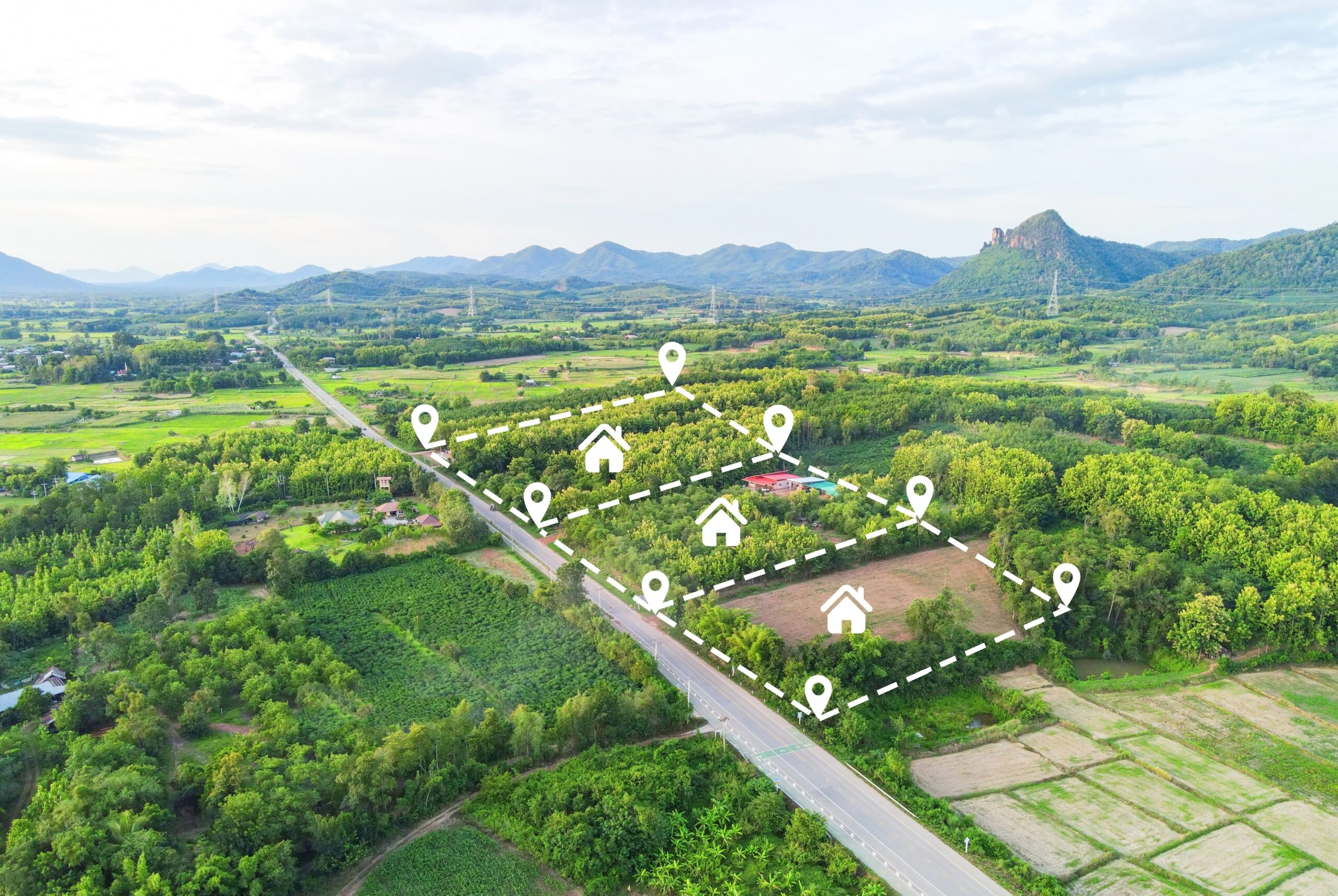What to Consider When Buying Vacant Land and Vacant Lots Near Boulder, Colorado
If you are considering buying vacant land or an undeveloped lot in Boulder County or elsewhere in the area, a bit of background will help you understand the dynamics of the market.
Historical Background
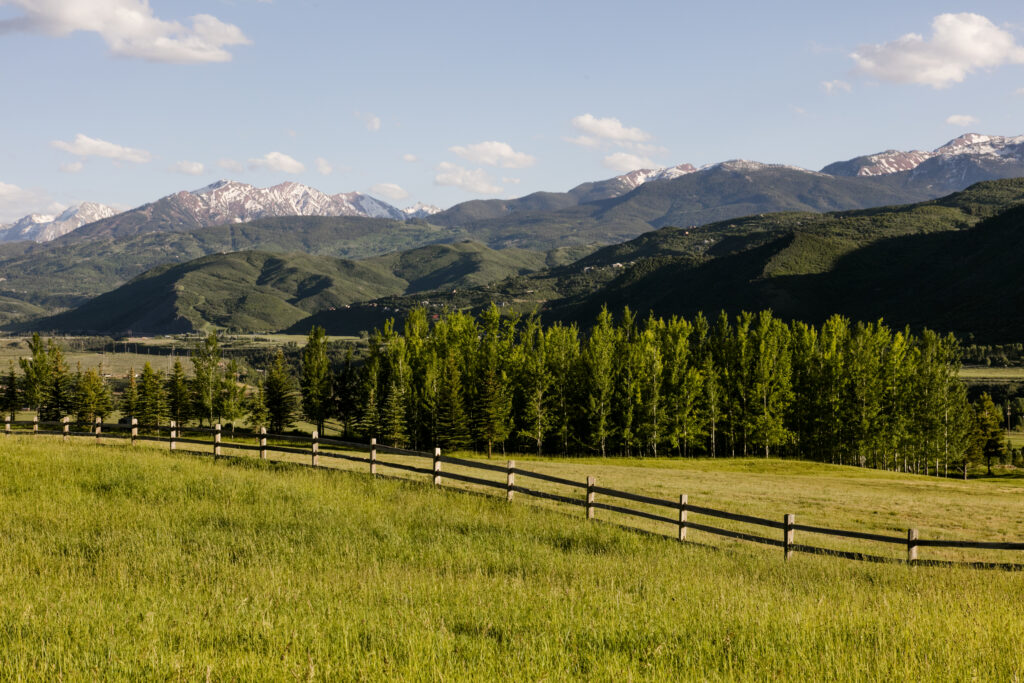
State Law: You need to understand that Colorado state law prohibits landowners from subdividing their property into parcels of less than 35 acres unless the city or county in which the property is located approves the subdivision. For several decades, Boulder County has approved such subdivisions only under very special circumstances, thus restricting the availability of new building lots within the county’s jurisdiction. As a consequence, most of the building that has occurred in the area has occurred on land annexed to towns and cities or on land in the rural or mountain areas that was subdivided prior to 1970. Once a parcel of land is annexed to a city, the city rather than the county determines whether and how the land can be subdivided and developed.
Preserving Open Space and Rural Areas: The reason that Boulder County has restricted subdivisions in the rural and mountain areas over the past decades is to try to preserve these areas in their current natural or agricultural state and to stop suburban sprawl. Both through direct purchases of land for preservation purposes and through regulations and practices to restrict growth and development, Boulder County and all the cities within it are actively involved in efforts to stop or slow new construction outside incorporated towns or cities. In recent years, this led to efforts by the county to stop building on mountain mining claims, to city of Boulder regulations that resulted in lottery drawings for building permits where the winners draw 1/4 of a building permit, and to a referendum in the city Lafayette restricting the number of building permits that can be issued in a given year.
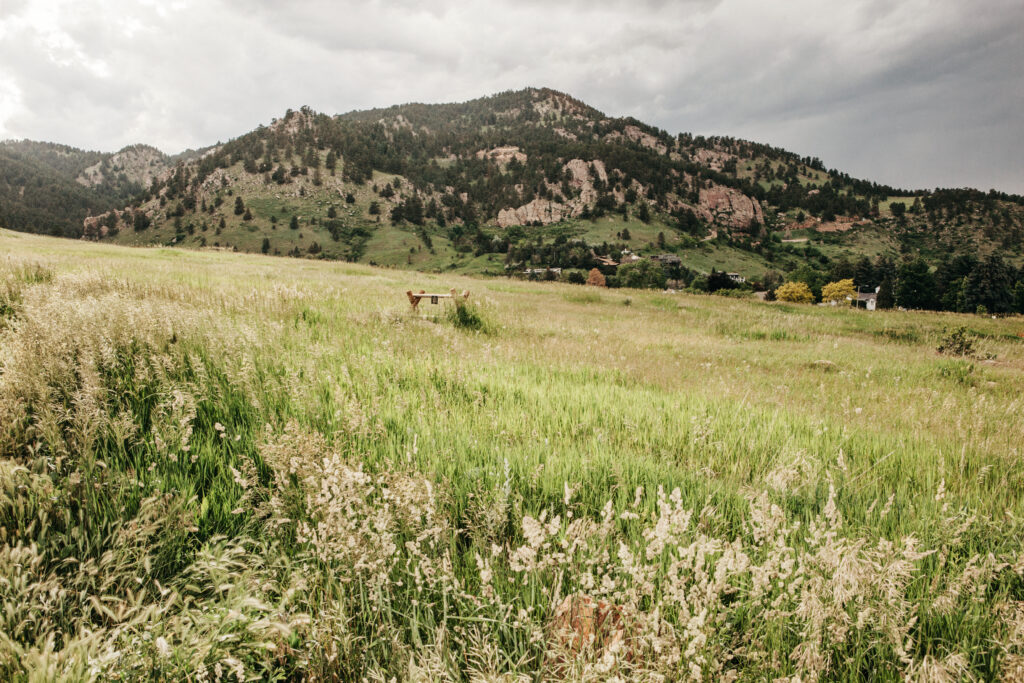
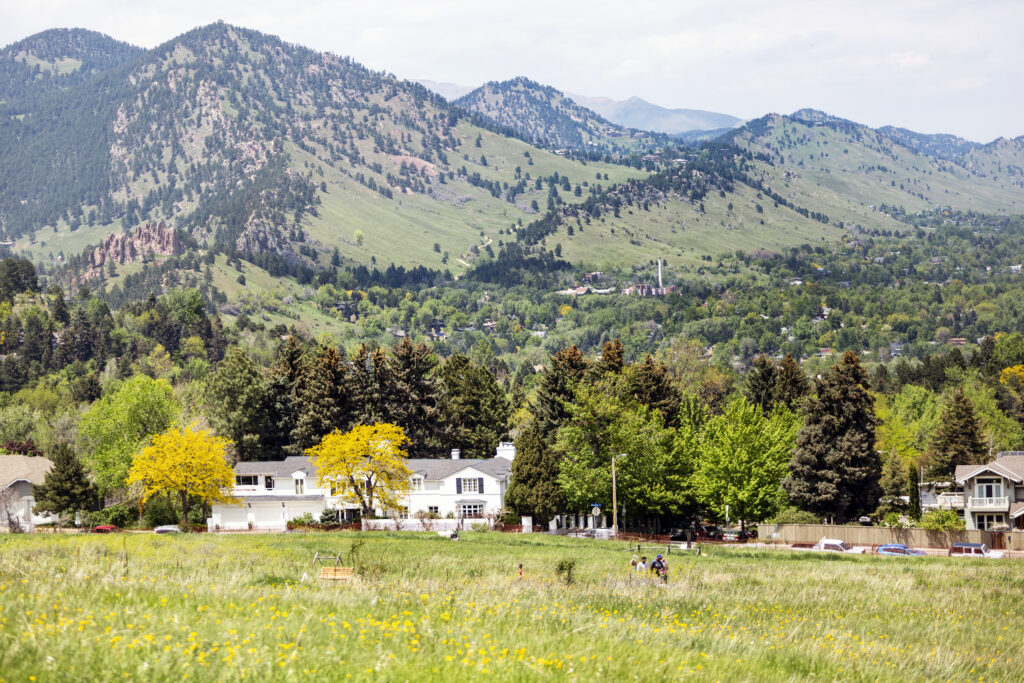
Limited Building Sites: The intended cumulative effect of all these efforts are that very few potential building sites are available, that the sites that are available are fairly expensive, and that the risks of running into trouble in your efforts to build are almost inevitable. The system is set up to discourage you and everyone else from building anything.
Minimum Recommendations
If you are determined to buy open land to build on in this area, I would recommend the following as minimum precautions:
- Work with Experts: Don’t even consider doing this on your own. You need to be working with a real estate agent or an attorney, preferably both, who have substantial experience with buying land in the specific local you are interested in.
- Purchase Contingent on a Building Permit: Make any purchase contract contingent on building permit approval by the relevant city or county authorities, and be certain to require that the terms and conditions of their approval must be satisfactory to you.
- Purchase Contingent on Verifying Construction Costs: Make any purchase contract contingent on your being satisfied with building costs and the costs of bringing utilities to the property. I have seen cases where power poles were located on an adjoining lot, yet the cost of bringing power to the property was $12,000. Foundations can be extremely expensive if you need to blast rock. And if the county requires that you build a $30,000 access road, you may not have any money left to build your house.
Obligations of Ownership
Not only are there restrictions on the use of virtually any property you buy, but by buying the property you will be assuming certain obligations. Real estate taxes are the most obvious of these. Home buyers are rarely surprised to learn that they are assuming an obligation to pay property taxes when they buy real estate. There are provisions (Section 8.4) within the standard Colorado purchase contract that allow the home buyer to review tax issues.
For those buying condominiums or townhomes, the responsibility of association fees is equally obvious, though buyers of single family homes in newer subdivisions must also be aware that association fees are quite common. Similar obligations arise for home buyers in rural or mountain areas where a number of property owners may have established contractual agreements to build and maintain a shared resource, most commonly an access road or a well. Buyers need to be aware that the nice graveled road leading to their home may not be maintained by county taxes but by $1000 yearly assessments to the homeowners on the road. The title company should alert the home buyer to any of these issues during the purchase process. The critical question is whether the buyers learns about their obligations while they still have time to back out of the contract.
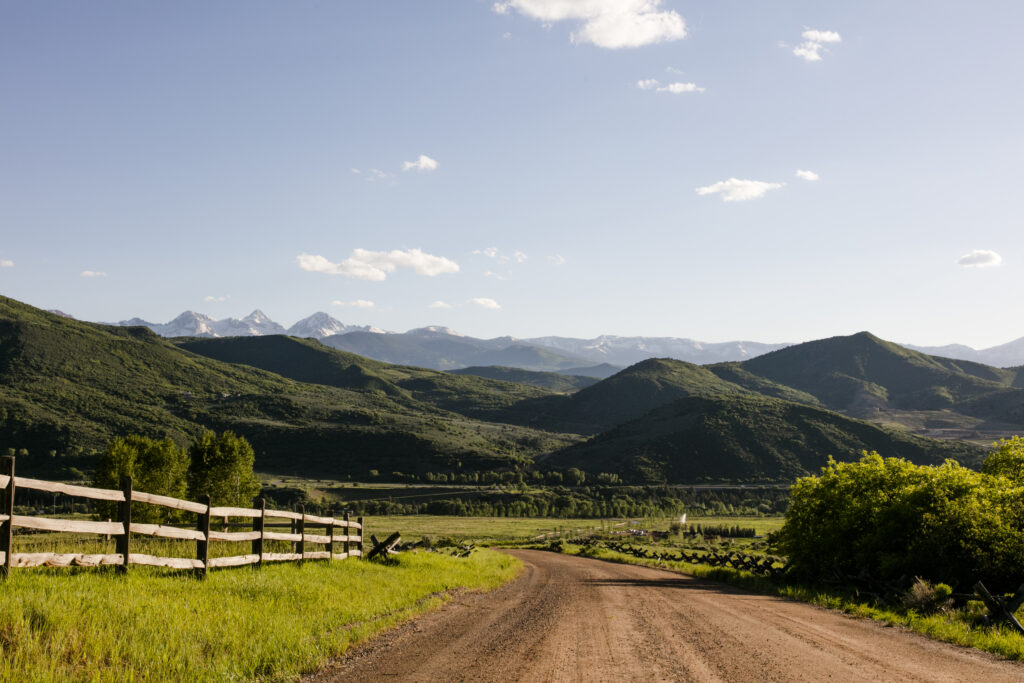
Occasionally, buyers may encounter more substantial, hidden obligations associated with property they are purchasing. Several years ago, we found that a road easement passing through a mountain property carried an obligation to contribute to the construction of a road that extended several miles beyond the property boundary. This created a potential financial obligation ranging anywhere from $10,000 to $50,000. Nothing in the title search made this obvious. The language was buried on the 10th page of the description of an easement.
The other major source of financial obligations that a home buyer could inadvertently assume through a property purchase involves liens. If the previous homeowner has failed to pay taxes, association dues, assessments from the homeowners association or the city, or bills for work that contractors have done on the home, liens can be recorded against the property. Generally, existing liens will be discovered by the title company, which will require that they be paid before closing. But if the title company makes a mistake, or if a contractor files a lien after closing, you may be held financially responsible. This is one reason we strongly recommend certain types of title insurance to our clients (see the discussion of title insurance in our section Under Contract).
Potential Risks with Vacant Land
If you want to be prudent and resolve these questions before you close on the purchase of a piece of land, it may take a year or even two to complete the purchase. Certainly, the purchase of a building lot is not always such a complicated and extended process. But it is important to understand that you can easily spend several hundred thousand dollars on a lot only to discover that you can’t build on it, or that the building site that the county officials will allow you to build on results in a 50% reduction in the value of the land you just bought.
Because this is such a complex and high risk issue, and because the issues vary so widely from one piece of land and one governmental jurisdiction to the next, I can’t even begin to outline the issues you need to be aware of when buying a building lot in the area. As a minimum, you need to understand that if you buy land in the area without truly expert assistance, you are taking one of the more foolish gambles you’ve taken in your life.
The Property Rights of Others

In most cases, other parties will have certain limited use rights on any property that you purchase. For example, nearly every lot in residential subdivisions will have easements for utilities and may have drainage easements as well. An easement provides parties other than the property owner rights to use the property (usually a precisely specified portion of the property) for specific purposes. Utility easements give the city and other utility providers the right to use portions of each lot, often the 8-10 feet along the front and back lot lines, to run water, sewer, electric, gas, and cable lines through the property. These easements also allow utility providers access to the property for repair and replacement of their equipment, including rights to remove landscaping or improvements that interfere with their access to the easement. Drainage easements prohibit the homeowner from installing landscaping or building structures that interfere with ground water drainage through the subdivision. In rural and mountain areas, road easements, which allow adjoining property owners the right to build, maintain, and travel across your property, are very common.
There are few limits to the use rights that can be granted through easements. Several years ago, a client of ours granted the owner of the property he purchased the right to bury his late wife’s ashes in an aspen grove on his property. This easement included rights for the husband and the children to visit the site. Most easements are recorded, so you should learn about them by reviewing the “schedule of exceptions” in your title commitment (see the discussion of title insurance in our section Under Contract).
However, since easements do not have to be recorded to be legally binding, there is a clause (Section 8.2) in the standard Colorado purchase contract that requires the seller to notify the buyer of unrecorded rights that might affect title.
Two other use rights that are a common part of our real estate practice involve leases and mineral rights. As a home buyer, it is important to understand that you take ownership of any property subject to existing leases on the property. If you buy a home or condo that the owner has leased to another party, you are now a landlord under the terms of the existing lease. The standard contract requires (Section 8.2) that the seller disclose any existing leases to you. Also, because mining was such an important part of our history in this area, the mineral rights for much of the property in the area are owned by parties other than the person who owns the land or the home on the land. This is a particularly troubling issue for owners of rural and mountain properties with larger lots. Here, the ownership of mineral rights may give mining or oil/gas companies the right to enter onto the property, and to build access roads and other facilities, in order to exploit minerals on the property. Again, mineral rights that have been “severed” from the property should be listed in the “schedule of exceptions” in the title commitment (see the discussion of title insurance in our section Under Contract). If someone else owns the mineral rights on your property, you need to consult an expert to determine whether this has any real implications for you as owner of the property.
Vacant Land
In the areas of Boulder, Broomfield and Jefferson Counties that we cover, buying land on which to build a home can be a long, difficult, expensive and potentially risky proposition. This is particularly true of the rural and mountain areas of Boulder County. If you have the money, you can certainly run out today, put down some cash, and own a piece of land tomorrow. However, it may be more prudent to verify first:
- That you will be allowed to build on the property.
- That you will be able to build on the location where you want to build.
- That you will be able to build what you want to build.
Next Up
Contact Agents for Home Buyers! We can help you navigate all the pros and cons and potential risks of buying a home. It’s what we have been doing as buyer’s agents for 25 years.
- Property Condition: Inspections, building permits, termites and soils
- Health Hazards: Radon, lead, asbestos, mold and water quality
- Your Requirements: Does the home meet your needs?
- Neighborhood & Community: Airports, mines, flood zones, and crime
- Legal Issues: Zoning, ownership, and covenants
- Vacant Land: Buying land or a lot to build on
- New Construction: Buying from a home builder
- Condos and Townhomes: Buying into a Homeowners Association

